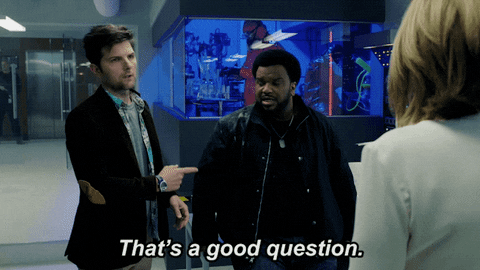
This is the first phrase I write when I create an advocacy card for each of my clients diagnosed with aphasia, along with a list of strategies others can use when speaking to them. An aphasia advocacy card is a little wallet-sized card that individuals with aphasia can hand to a stranger- perhaps a bank teller, a cashier, or a receptionist at the doctor's office- to educate them about what aphasia is, and how best to communicate with them.
A common assumption many people might make when meeting someone with aphasia for the first time is: This person must be cognitively impaired. I have accompanied many clients into the community and have seen it first hand, even from trained medical professionals. I've seen the deer in the headlights look, the slow, simple, saccharine speaking voice, the way you might speak to a child, or even worse, the loud and slow shouting of broken English, as if the person with aphasia can't hear you or speak the same language.

This is where the advocacy card comes in handy. It's not the bank teller or the cashier or the receptionist's fault; they just haven't had any exposure to the disorder. And as much as I wish I could follow my clients around all day educating people about aphasia, I can't. That's why the first thing I do in speech therapy for a client with aphasia is make them an advocacy card so they can advocate for themselves.
So, you might be thinking- what is aphasia? And how can I best communicate with a person who has aphasia?

Aphasia is a language disorder that can happen when you have damage to the brain, such as a stroke, a traumatic brain injury, a brain tumor, or other neurological condition. Depending on what part of the brain was impacted and how severe the injury was, aphasia can affect one or more of the following:
- Expressive language (turning our thoughts into words)
- Receptive language (understanding what others say)
- Reading
- Writing
A person with aphasia may experience the following symptoms, among many others:
- Feeling like every word is on the tip of their tongue.
- Substituting the wrong words (e.g. saying "banana" instead of "apple").
- Using made-up words or jumbling words in a sentence.
- Not being able to string sentences together fluently.
- Having difficulty using "little" words such as "the", "of", "on", etc.
- Providing unreliable answers to yes/no questions.
- Finding it difficult to understand what others are saying, especially complex sentences.
- Not being able to understand speech in a group of people or in a noisy room.
- Having difficulty reading or writing.
- Having difficulty identifying when they've made an error in their speech.
The craziest part is, no two cases of aphasia are the same. Aphasia comes in many shapes and sizes, can manifest in many different ways, and can even change as the person recovers from their injury.
So how can we best support communication in our interactions with people with aphasia?

Here are some tried and true conversation strategies you can implement if you have loved ones with aphasia, or if you meet someone in the community you might suspect has aphasia:
- Make sure you have the person's attention before speaking to let them know they're about to have an "incoming message".
- Make the environment as quiet and calm as possible. This may mean moving to a different space to talk or turning off the TV or radio.
- Keep your voice at a normal conversational level, unless the person does have a hearing impairment and asks you to speak up.
- Do not try to finish their sentences for them. Allow them plenty of time to speak and finish their thought, unless they ask for help.
- Speak slowly and use simple (but not childish!) sentence structure.
- Emphasize key words in your sentence.
- Use gestures, drawing, writing, and facial expressions to accompany your statements to encourage comprehension.
- Ask yes/no questions and give choices: "chocolate or vanilla"?
- Repeat back what you understood of their communication attempt to clarify if that is what they meant. - Encourage all attempts to speak and downplay any errors. Many people with aphasia are embarrassed and nervous to attempt communication.
- Treat them normally, like the intelligent adult human being they are.
- Most importantly of all, BE PATIENT!
It can be frustrating to speak to someone with aphasia, especially if the conversation is riddled with communication breakdowns and confusion. It's okay to feel a little frustrated and confused, but remember to have empathy- the person living with aphasia is experiencing the same frustration and confusion 24 hours a day, 7 days a week, with no reprieve. It's hard, it's scary, and it's isolating. But if you use these communication strategies when speaking with them, you just might make a difference in their day.

-Dr. Taylor Hickok, DBH, CCC-SLP
